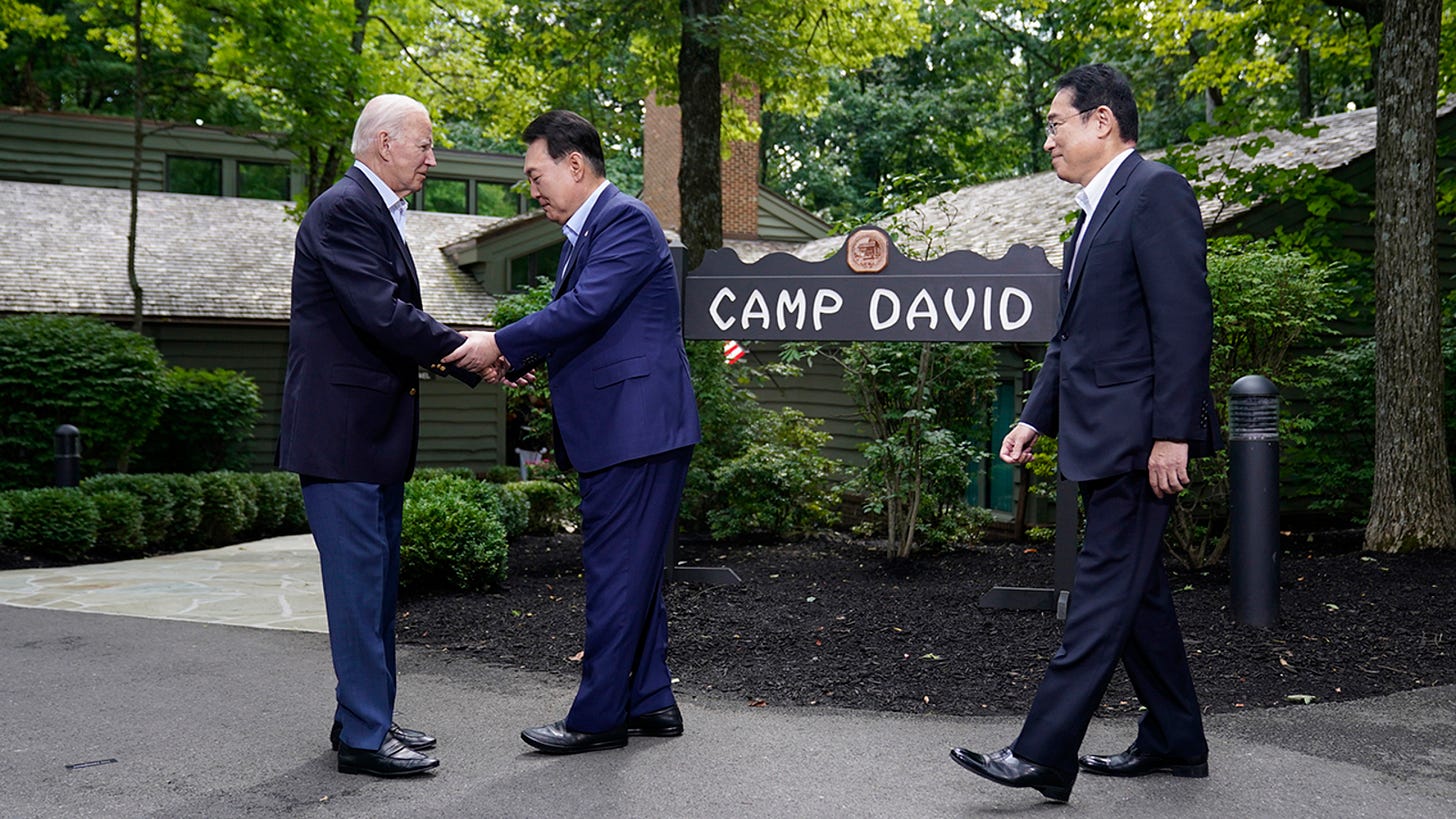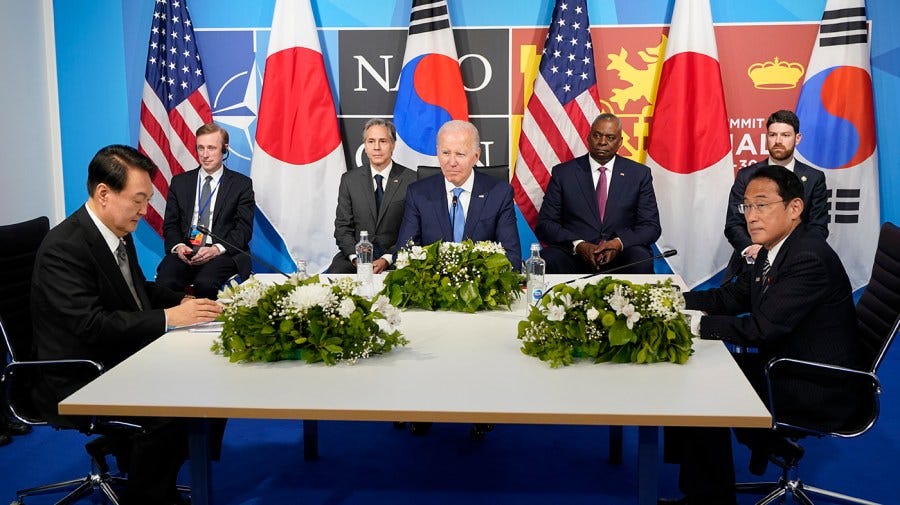President Biden Provokes North Korea And China, North Korea Says This Can Cause A "Thermonuclear War"
Provoking Pyongyang and Beijing: Biden's Risky Gambit Threatens Regional Stability
In the tense geopolitical theater of the Korean Peninsula, the recent events involving U.S. reconnaissance planes near North Korean airspace indicate the Biden administration's complex and provocative approach toward the DPRK, aka North Korea. According to North Korean state media, a stark incident occurred when North Korea scrambled fighter jets on Thursday in response to a U.S. reconnaissance airplane that ...
..."intruded into the economic water zone of the DPRK side to a maximum depth of 14 km three times to conduct espionage on the eastern and in-depth areas of the DPRK."
This isn't an isolated occurrence in the intricate dance of power plays. About 20 days earlier, North Korea accused the U.S. of a similar transgression. Kim Yo Jong, sister of North Korean leader Kim Jong Un, didn't mince words when she warned direly of potential "shocking incidents" if such provocative activities persisted. Given these situations, examining whether President Joe Biden's decisions are intentionally leading the nations down a path of unwarranted escalations rather than the hoped-for peaceful engagements becomes essential.
The recent trilateral summit at Camp David, involving the U.S., South Korea, and Japan, is the backdrop to these incendiary incidents. Aimed at presenting a united front against the "grave threats" posed by North Korea, the meeting outcomes reflected intensified defense and intelligence collaboration between the trio.
While the Biden administration has repeatedly praised these meetings as laying the foundation for a long-term, cohesive relationship, the underlying narrative speaks volumes. North Korea undoubtedly views the merger between the three countries as a direct threat, as said time and again on this publication.
Furthermore, the commitment to activating a real-time missile warning data-sharing mechanism is ostensibly a measure for improving the detection and assessment of North Korean missile launches. The agreement to conduct annual trilateral defense exercises will likely militarize the peninsula in the foreseeable future. While pivotal for the collective security of the U.S., South Korea, and Japan, this multi-year trilateral framework is also a powder keg, heightening tensions in an already volatile region.
The working group between the three nations is poised to delve deeper into intelligence sharing, with objectives such as coordinating responses to North Korea's burgeoning cryptocurrency endeavors and curtailing their cyber operations. However, in the grander scheme of geopolitics, these objectives unmistakably contribute to amplifying anxieties on the peninsula. Still, in the greater scheme of geopolitics, they unmistakably contribute to escalating tensions that naturally establish the pretext for war again on the Korean Peninsula.
In a conspicuous move at the summit held at Camp David, the Biden administration sought to showcase unity against North Korean nuclear threats against the shadow of China's ascending power in the region. China's immediate response, cautioning against forming military blocs in the Asia-Pacific, underscores the tightrope the Biden administration is walking on.
President Biden's Camp David summit, intended to symbolize "new beginnings," has billowed embers of war on the Korean Peninsula instead. As of the writing of this article, fighter jets have been conducting their drills over South Korea essentially none stop the past 48 hours. The ongoing decisions and actions, rather than de-escalating the tense situation, push the involved nations closer to the brink of confrontation.
North Korea says it is "waiting for the moment" to "punish" the U.S. and South Korea for conducting joint military drills Aug. 21-31, KCNA reported Tuesday. It also warned of an "outbreak of thermo-nuclear war," blaming the US-ROK-Japan Camp David agreements.
“A thermo-nulear war, the first ever in history, is more than likely on the Korean peninsula.” -Korean Central News Agency
While strategic posturing is integral to international diplomacy, the stakes on the Korean Peninsula have never been higher. Today's choices have ramifications for the immediate players and global peace and stability. As events unfold, the Biden administration must recalibrate its approach by emphasizing dialogue over military displays and diplomacy over provocations.
“North Korea has said it will launch a satellite between Aug. 24 and Aug. 31 in the direction of the Yellow Sea and East China Sea, the Japanese Coast Guard said on Tuesday, after a botched launch in May”, according to Reuters.
South Korea will conduct its first nationwide civil defense drill in six years. This exercise trains citizens where to find one of the 17,000 shelters, with their locations available on the country's navigation apps. If you are in a subway, you will have to stay underground. If you are driving, you must pull over and follow radio instructions. Foreigners are encouraged to also participate in this drill.



